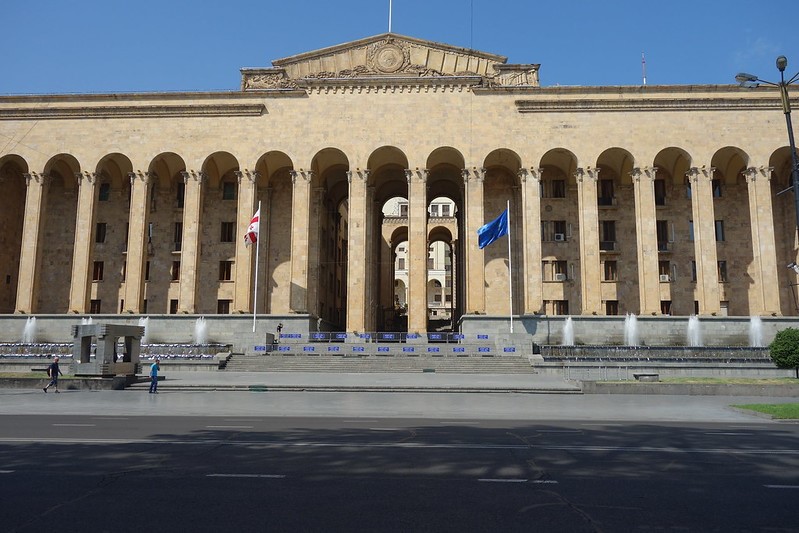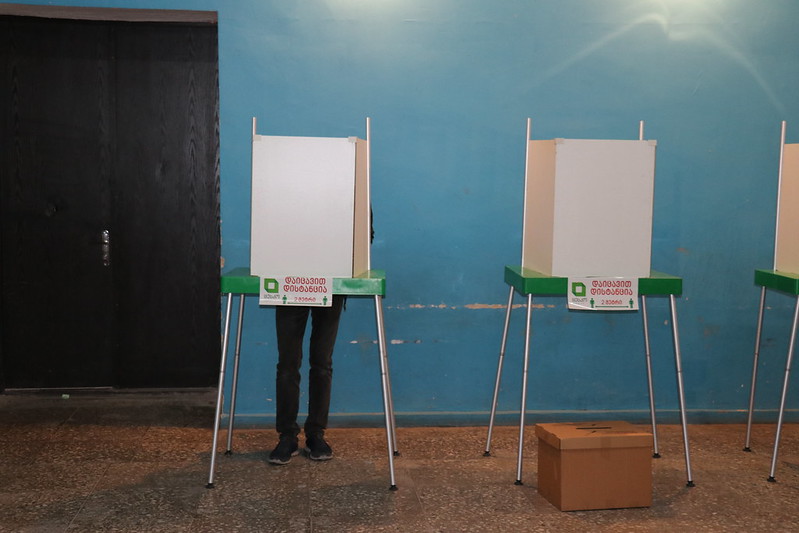The prospect of six-party regional cooperation in the South Caucasus
By Fuad Shahbazov
January 26, 2022, the CACI Analyst
On October 6, 2021, Russia’s Minister of Foreign Affairs Sergei Lavrov met his Iranian counterpart Hossein Amir Abdollahian in Moscow to discuss regional security and economic cooperation, and to address important concerns regarding the crisis in the South Caucasus. During the joint press conference, Lavrov repeatedly highlighted the idea of a “3+3 cooperation format” including the three South Caucasus states – Armenia, Azerbaijan, and Georgia – plus their three large neighbors, Russia, Turkey, and Iran, to focus on unlocking economic and transport communications in the region. The first meeting within the format took place in Moscow on December 2021; however, Georgia refused to take part. Moreover, recent tensions in the region between Armenia and Azerbaijan as well as Azerbaijan and Iran suggest that the proposed format will not generate visible positive outcomes.

Is Georgia at risk of losing its European perspective?
By Beka Chedia
November 26, 2021, the CACI Analyst
On August 31, Georgian authorities announced that they declined a loan of 75 million Euros from the EU, since they already had sufficient resources and did not the assistance from the EU. This was preceded by a warning from the European Council President Charles Michel about the potential freezing of macro financial aid unless Georgia makes progress in democratic reforms. The Georgian authorities thus sent a tough political message to Brussels, objecting to Brussel’s interference in the country’s domestic political process. Due to the crisis in relations with the EU, Georgia faces a real danger of losing its European perspective.

Political Crisis in Georgia Takes Turn for the Worst
By Natalia Konarzewska
April 13, 2021, the CACI Analyst
Georgia’s Prime Minister Giorgi Gakharia stepped down on February 18 following the detention of the opposition United National Movement’s (UNM) Chairman Nikanor (Nika) Melia. The previous day, Tbilisi City Court ruled to place Melia in pretrial detention on charges of leading the storming of the parliament during the June 2019 protests. Gakharia resigned amid a protracted political conflict between the ruling Georgian Dream (GD) party and the opposition following the October 2020 parliamentary elections. The opposition, including UNM, refused to acknowledge the official results and enter the new convocation of the parliament. De-escalation seems unlikely after Irakli Gharibashvili, until then Minister of Defence and known for his uncompromising stance towards the opposition, was appointed to replace Gakharia as Prime Minister.

What the Biden Administration Can and Should do in the South Caucasus
By Stephen Blank
February 8, 2021, the CACI Analyst
The advent of the Biden Administration provides an opportunity to give the South Caucasus the importance it deserves in U.S. foreign policy. The recent war over Nagorno-Karabakh has underlined the region’s geostrategic importance, whereas the institutionalization of a Russo-Turkish rivalry/condominium raises the real possibility that another clash could trigger a confrontation between these two powers, one of whom is a NATO ally, as well as their proxies. Simultaneously, Georgia suffers from a drawn-out political conflict among the leading political parties. In this context, the new Administration and its allies in Europe should act to improve the West’s position in the South Caucasus.

Georgian Dream Claims Third Consecutive Victory in Parliamentary Elections
By Natalia Konarzewska
November 16, 2020, the CACI Analyst
For the first time in the country’s history, Georgia’s ruling party has secured a third consecutive term in the parliamentary elections on October 31. Many observers termed the vote pivotal as it was held under the freshly introduced predominantly proportional voting system, expected to break Georgian Dream’s (GD) tight grip on power, and amidst the unprecedented health crisis caused by the coronavirus pandemic. The opposition has refused to accept the results due to a large number of irregularities and pledged to boycott the new convocation of parliament.





